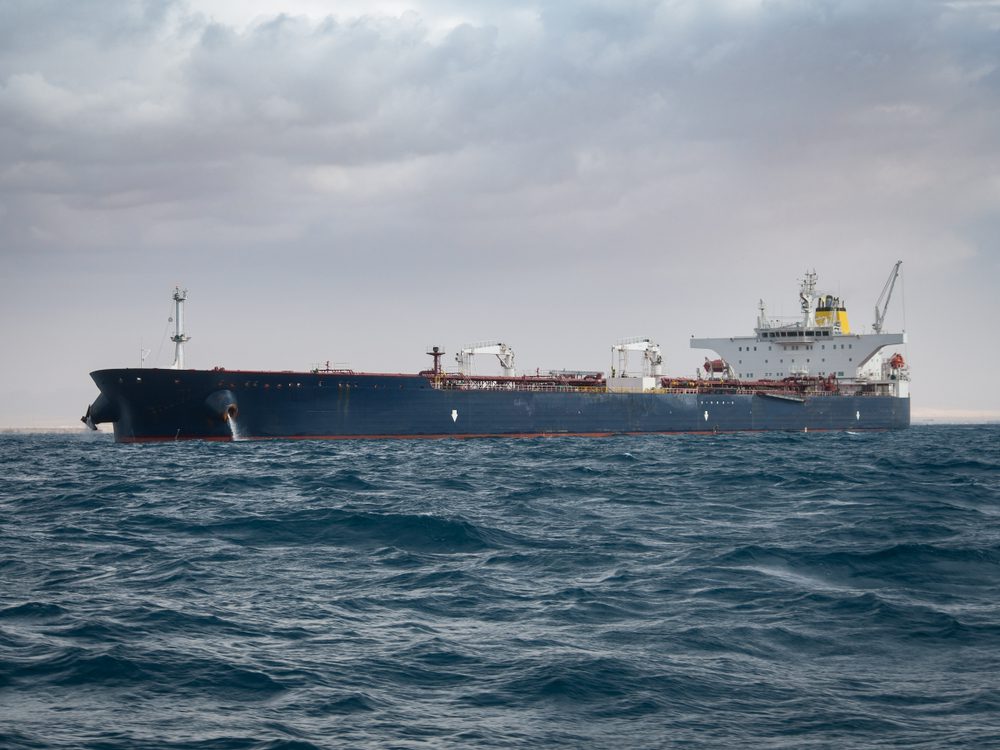Photo: Evgeny Shulin / Shutterstock
 By Jonathan Saul LONDON, Nov 6 (Reuters) – The United States will target shipping companies that are in breach of sanctions and aggressively enforce measures across the globe to clamp down on such practices, a top U.S. official said on Wednesday.
By Jonathan Saul LONDON, Nov 6 (Reuters) – The United States will target shipping companies that are in breach of sanctions and aggressively enforce measures across the globe to clamp down on such practices, a top U.S. official said on Wednesday.
In one of the biggest sanctions actions taken by the U.S. government since its crackdown on Iranian oil exports, Washington imposed sanctions on Chinese companies in late September for alleged involvement in moving crude oil from Iran.
COSCO Shipping Tanker (Dalian), a subsidiary of China’s state-owned shipping group COSCO, was one of the companies blacklisted.
Concern over shippers falling foul of U.S. sanctions sent oil freight costs to record highs around the world, adding millions of dollars to the cost of every voyage.
Washington has also used sanctions on other countries including Venezuela and North Korea.
David Peyman, deputy assistant secretary of state for counter threat finance and sanctions, said ships were “the key artery to evade sanctions.”
“If behavior doesn’t change, notwithstanding our very frank conversations and clear messages, then we do look towards fully and aggressively and consistently enforcing U.S. sanctions across the board as a means to change behavior of bad actors,” he told reporters on a visit to London.
Peyman, who was holding meetings with shipping officials in Europe, said the maritime supply chain was complex but companies needed to invest in more due diligence and take proactive measures to avoid being caught in potential sanctions breaches.
“It’s costly to invest in due diligence and I know business leaders don’t see value added,” said Peyman, who leads the U.S. Office of Economic Sanctions Policy and Implementation.
“Unfortunately, they will see value added when there are hard costs to bear including their business potentially going out of business because of a designation or enforcement action.”
Peyman said insurance companies and banks could check the history of ships they covered or financed to see whether there were gaps in a vessel’s voyage history, which is logged through AIS tracking transponders, which may point to illicit and concealed activity.
COSCO
Last month, Washington gave temporary approval for companies to wind down transactions with the designated COSCO subsidiaries until Dec. 20.
Peyman said he was “not going to be able to signal what we are going to do after the expiration of the license, other than to say that we are engaged in discussions with COSCO.”
Peyman said shipping officials had described to him the move against the COSCO entities as “shock and awe.”
He added that the goal was to “help set a good precedent for others in the sector to learn the lessons from a designation like COSCO – that no company is too big to be sanctioned, no company is in a jurisdiction that is safe from sanctions and what they could be doing to protect themselves.” (Editing by Dale Hudson)
(c) Copyright Thomson Reuters 2019.

 Join The Club
Join The Club











